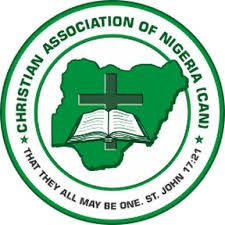
Governors to wedge tax leakages, enhance IGR generation
The 36 State Governors in Nigeria, under the auspices of the Nigeria Governors’ Forum, have initiated a workshop on wedging tax leakages and improving their internally generated revenue.
The announcement came during the Governors’ meeting yesterday, tagged, “The 8th IGR Peer Learning Event and Launch of the Nigeria Governors’ Forum Public Finance Database,” by the Chairman of the NGF and Governor of Ekiti State, Dr Kayode Fayemi.
Fayemi affirmed that the prominence of the workshop was to uncover strategies for improving tax generation for improved states’ revenue.
In addition, states’ internally generated funds rose by 35 per cent, from N1.31 trillion in 2019, to N1.67 trillion in 2021, and the Governors announced the latest finance database that would facilitate the distribution of information on tax modification to enhance their internally generated funds.
In the same vein, the Southern Governors Forum, yesterday, said it was gladdened with the resolution of the 19 Northern State Governors and their Monarchs, advocating the creation of state police to tackle the prolonged insecurity problems in the country.
Fayemi stressed that, “we have seen total IGR of states grow from N1.31 trillion in 2019, to N1.67 trillion in 2021, and the share of IGR, as a percentage of total recurrent revenue, grew from 31 per cent in 2019 to 35 per ent in 2021. While this is good progress, we must not lose sight of the need to sustain and advance the momentum of reforms, considering the decline in FAAC receipts.”
Moreover, the Governor recalled how it was decided as Governors in 2019 to be frantic with the restructuring of well-organised and valuable tax management.
Continuing, he said general restructuring was centred on halting compound taxation expertise and contemporary revenue services, including acceptance of a taxpayer-centric background that will simplify taxpayers’ obedience, and support the accessible common agreement.
He also added that, “Beyond the laws and regulations we have passed, we must occasionally, by policy, respond to the fast-changing tax environment if we must stay ahead of evasion and avoidance tactics, recognise the need to support our internal revenue service’s and continue to empower them with the necessary political support and financial resources required for them to execute their mandate effectively,” he clarified.
Speaking on ways of improving their income support, he said, “Broadly, we must seek out ways to expand the tax net and improve our taxpayers’ database. This will require ending the proliferation of taxpayers’ identification numbers and databases. It is pertinent that we harmonise leveraging a unique identification number, as is global best practice.”
He therefore pointed out that, “for us to achieve this, information sharing between jurisdictions must be seamless, not only between the tiers of government but also inter and intra-state. I would like to encourage the Joint Tax Board, in its pursuit of a plausible solution to this anomaly.”
Speaking on increased community suitability of tax generation, he emphasised that, “we have improved the transparency not just around tax revenues, but the entire treasury. Today, our budgets and audited financial statements are not just publicly available, but also in citizen-friendly versions.
“This will be supported by the NGF Public Finance Database, which we will be launching today.
“A database that allows users to easily filter and analyse states’ fiscal data and information. We understand the need to build greater accountability, especially showing citizens the linkage between their taxes and service delivery.
“We are working with our revenue services and other MDAs to expand our tax-for-service initiatives, in rewarding compliance while ensuring citizens know where we expend their taxes annually,” the Governor stressed.
He also officially launched the Nigeria Governors’ Forum Public Finance Database, Nigeria’s first reference database for state level public finance data.
“This database reiterates our commitment to fiscal transparency and accountability as well as our resolve to strengthen governance in the country. We welcome your continuous support.”



